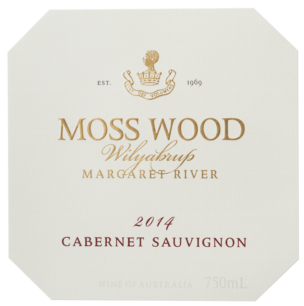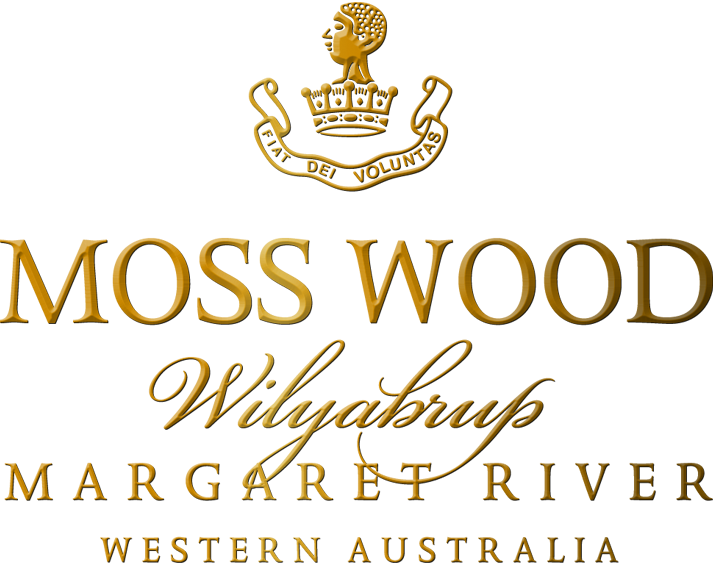Moss Wood 2014 Cabernet Sauvignon

Wine Facts
| Harvested: | Cabernet Sauvignon – 16th March, 2014 Cabernet Franc – 4th March, 2014 Petit Verdot – 22nd March, 2014 |
| Blend: | 92% Cabernet Sauvignon 4% Cabernet Franc 4% Petit Verdot |
| Bottled: | 21/11/2016 |
| Released: | 17/03/2017 |
| Yield: | Cabernet Sauvignon – 7.07 t/ha Cabernet Franc – 4.84 t/ha Petit Verdot – 6.38 t/ha |
| Baume: | Cabernet Sauvignon – 13.6⁰ Be Cabernet Franc – 13.1⁰ Be Petit Verdot – 13.8⁰ Be |
| Alcohol: | 14% |
| Vintage rating: | 10/10 |
SOLD OUT
Moss Wood 2022 Cabernet Sauvignon – The Cellar Post
Beautiful definition and purity on the nose that shows fresh cassis, blackberries, and black plum, with cedar, pencil shavings, subtle vanilla and mocha nuances. Medium-full, superb freshness and concentration on the palate, dark fruit with a vibrant streak of purple, excellent oak spice, clove and tobacco, firm tannins and vibrant…
Vintage Notes
Climate Data
Growing Season Ave Temperature – 19.97⁰C
Number of hours accrued between 18 and 28⁰C – 1091
Number of hours above 33⁰C – 36
Days Elapsed Between Flowering and Harvest
Cabernet Sauvignon – 116 days
Cabernet Franc – 110 days
Petit Verdot - 119 days
We introduce our Moss Wood 2014 Cabernet Sauvignon by talking about the weather, as the best way to highlight how good the vintage was. Yes, we always emphasise the weather and regular readers know our strongly held view that the quality of any vintage is largely the product of the vineyard and the growing season it experienced.
As much as technology ensures we minimise the downside of poor weather or human error, ultimately, the quality we deliver in the bottle is almost entirely down to Mother Nature.
It’s an amusing truism that farmers complain about the weather and we grapegrower cockies are no different, watching it closely and fretting about what it will bring. Of course, there’s nothing we can do about it but we can respond to varying conditions and do our best to shepherd the crop safely to harvest. In reality, even in a tough season, the weather makes our lives interesting in a positive way. It seems contradictory but the more difficult the conditions, the more professionally challenging and satisfying the process can be, especially when we make really good wine, with 1989 a shining example.
And then there’s 2014. From the time the vines went through budburst until the grapes were harvested 6 months later, the weather was entirely in our favour. It’s hard to know where to begin.
We had above average rainfall through 2013 but most of it fell at times that caused minimum disruption. In our dry grown vineyards, this is always a bonus. It’s probably churlish to note the Cabernet Sauvignon and Cabernet Franc yields were very slightly down (about 4%), which we suspect was the result of 4 wet days during flowering. Petit Verdot, which flowered slightly later, wasn’t affected.
Temperatures were ideal, with consistent mild to warm conditions and virtually no extreme heat. The mercury exceeded 40°C on only one day, 11th January, lasting for 45 minutes and across the whole season, there were a total of 36 hours above 33°C, almost a little too cool for Cabernet Sauvignon, where we’d prefer more like 50 hours, just to be on the safe side. Most importantly, the vines do their best work when the temperature remains in the mid-twenties and they basked for hours in those conditions.
Our role was essentially reduced to that of bystanders but we’re proud to report we succeeded in avoiding disease and stopped the birds with timely application of nets.
With such good conditions, the Cabernet Sauvignon strolled effortlessly across the finishing line of full ripeness on 16th March, 10 days ahead of average.
Tasting Notes
The colour is deep brick red and condition is bright. On the nose the wine displays the full range of Cabernet fruit aromas - blueberries, blackberries and red currants, plus lifted perfumes of violets and pomegranate. As pretty as these characters are, underneath there are layers of leather, cedar and tar reminiscent of years like 1975 and 1995, adding significant complexity.
The palate is similarly a rich expression of Cabernet Sauvignon, with the full array of ripe mulberries and cassis, giving rich fruit depth and length. The structure is very supple and sits underneath this generous fruit. The acidity gives the flavours vibrancy and the tannin is concentrated but rounded, so the effect is one of smoothness and length. The finish is soft oak, leather and tar.
Production Notes
All this good news meant we were under pressure to deliver in the winery and 2014 is truly a “no excuses” year.
We have been repeating this statement for 45 vintages but will say it again, with feeling. We applied the now traditional Moss Wood production technique of hand picking all the fruit, destemming it into small, open fermenters and establishing fermentation with pure yeast cultures. Once underway, each batch was hand plunged 3 times per day and left on skins for between 16 and 19 days, according to taste, then drained and pressed to a stainless steel tank. Through April 2014, each of the batches underwent malolactic fermentation, and upon completion, were racked to wood. All barrels were French oak barriques and 17% were new.
At the beginning of November 2016, the wine was racked from barrels and blended in preparation for bottling. The blend is 92% Cabernet Sauvignon, 4% Cabernet Franc and 4% Petit Verdot. Fining trials were carried out but none improved the wine, so it remained unfined. It was then sterile filtered and bottled on 21st November, 2016.
Cellaring Notes
We can’t help but feel with this wine we have made a true rival for 2001 and 2005. It is not exactly the same as those two, having slightly lower alcohol and with that more vibrant fruit lift, but this is splitting hairs. Like those two wines, the depth, balance and length point to long aging potential but in the short term, we are more than happy to recommend it for early drinking, to enjoy its youthful generosity. However, this wine will repay serious cellaring and develop to full bottle bouquet at around 20 to 25 years of age. After that, it will continue to provide enjoyable drinking until at least 40 years of age.

